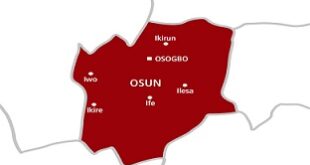… As Bayelsa NUJ Chairmanship Hopefuls Attend FCC’s Annual Lecture
A Niger Delta activist and Director of Planning, Research and Statistics in the Niger Delta Development Commission (NDDC), Dr Patterson Ogon, has said that Nigeria’s over reliance on oil has disabled opportunities for the creation of a diversified economy in the country.
Dr. Ogon, while speaking on the theme: ‘Niger Delta Region and Nigeria’s Economic Diversification: Challenges and Prospects,’ during the 13th annual lecture series of the Federated Correspondents’ Chapel, Nigeria Union of Journalists, Bayelsa State council on Wednesday, explained that Nigeria’s economy was primarily driven by agriculture before the discovery of oil.
According to him, “Agriculture accounted for 72% of Nigeria’s total national output in 1950”. These include crop production such as palm oil and kernels, rubber, cocoa, coffee, groundnut etc. Other economic activities include animal rearing, fishing, hunting, and gathering”
He urged Nigerian state to begin the process of moving away from oil and focus on other sectors like agriculture and manufacturing in order to have a sustainable economy, and ensure safer ecosystem.
He said: “Nigeria’s economic diversification faces challenges such as a history of fiscal dependence on oil, mismanagement of oil proceeds, and volatile global oil prices. The Niger Delta region, which is home to a large population and abundant natural resources, has potential to contribute to Nigeria’s economic diversification.
“The discovery of oil and the wealth it creates in those societies has its own pains. It’s a classic case of the rich also cry. The above quotes may not have been made for the fun of it. Nigeria’s complex socio-economic and political crisis, deepened by the exploitation and exploration of oil, may only have added to the global disconnect that oil has created.
“Economic diversification is the process of shifting an economy away from a single income source toward multiple sources from a growing range of sectors and markets. Traditionally, it has been applied as a strategy to encourage positive economic growth and development. In the Nigerian setting it largely explores the possibility of shifting away from our over reliance on oil exploitation to other critical sectors with potentials of generating economic benefits.
“It is common knowledge that Nigeria’s economy was primarily driven by agriculture before the discovery of oil. “Agriculture accounted for 72% of Nigeria’s total national output in 1950”. These include crop production such as palm oil and kernels, rubber, cocoa, coffee, groundnut etc. Other economic activities include animal rearing, fishing, hunting, and gathering.
“The primary food crops included guinea corn, millet, beans, yam, sweet potatoes, pepper, kola nuts, and vegetables. In recent times, agriculture does not seem to count for much because security challenges in the north and middle belt, generally known to be the food basket of the nation as well as the environmental pollution in the Niger Delta has affected the sector.
“Economic diversification has been a thing of interest to Government. In pre-petroleum Nigerian economy, the basis of sustenance was essentially agriculture. However, the discovery of oil worsened the productive capacity of our economy as we really did not have to labour to eat. Oil proceeds threw away the historic feats of the palm oil economy, groundnut pyramids, cocoa and the place of agriculture in our lives As a matter of fact.
“The Third National Development Plan 1975- 1980 was aimed at a more equitable distribution of income, the diversification of the economy as well as indigenization of commerce. The era witnessed gigantic projects in the form of two refineries (at Warri and an Iron steel complex at Ajaokuta). In fact, the period witnessed general improvements in infrastructure.
“However, it is common knowledge that the global petroleum industry is a volatile ecosystem. It has its lows and highs. The Catholic Relief Services notes in its 2003 report, “Bottom of the Barrel: Africa’s Oil Boom and the Poor” thus:
As economies grow more dependent on a depleting resource, as these resources are mismanaged through rentier pressures, and as growth declines while demographic pressures grow, oil exporters move from exhilarating booms to painful busts.
“The volatility of oil prices-the rapid fluctuation from $8 to $35 per barrel and back further undercuts efforts to turn oil wealth into other more permanent forms of sustainable development.
Nigeria’s mono-economy, crude oil, is a source of problem to its survival.
Neither agriculture nor manufacturing has been given the necessary environmental condition and attention to boost productivity.” He said.
Earlier, the Chairman of Federated Correspondents’ Chapel, Mr Tife Owolabi, said the engagement is crucial to the Niger Delta Region’s pivotal role in Nigeria’s economic diversification, identifying challenges impeding economic diversification in the region and explore innovative solutions and prospects for sustainable growth.
According to him, “The Niger Delta, rich in natural resources, faces unique challenges that hinder its potential. From environmental degradation to infrastructure deficits, and from socio-economic disparities to security concerns, the region’s complexities demand thoughtful exploration.
 PH Mundial – Port Harcourt Online Newspaper News Across The Region
PH Mundial – Port Harcourt Online Newspaper News Across The Region





